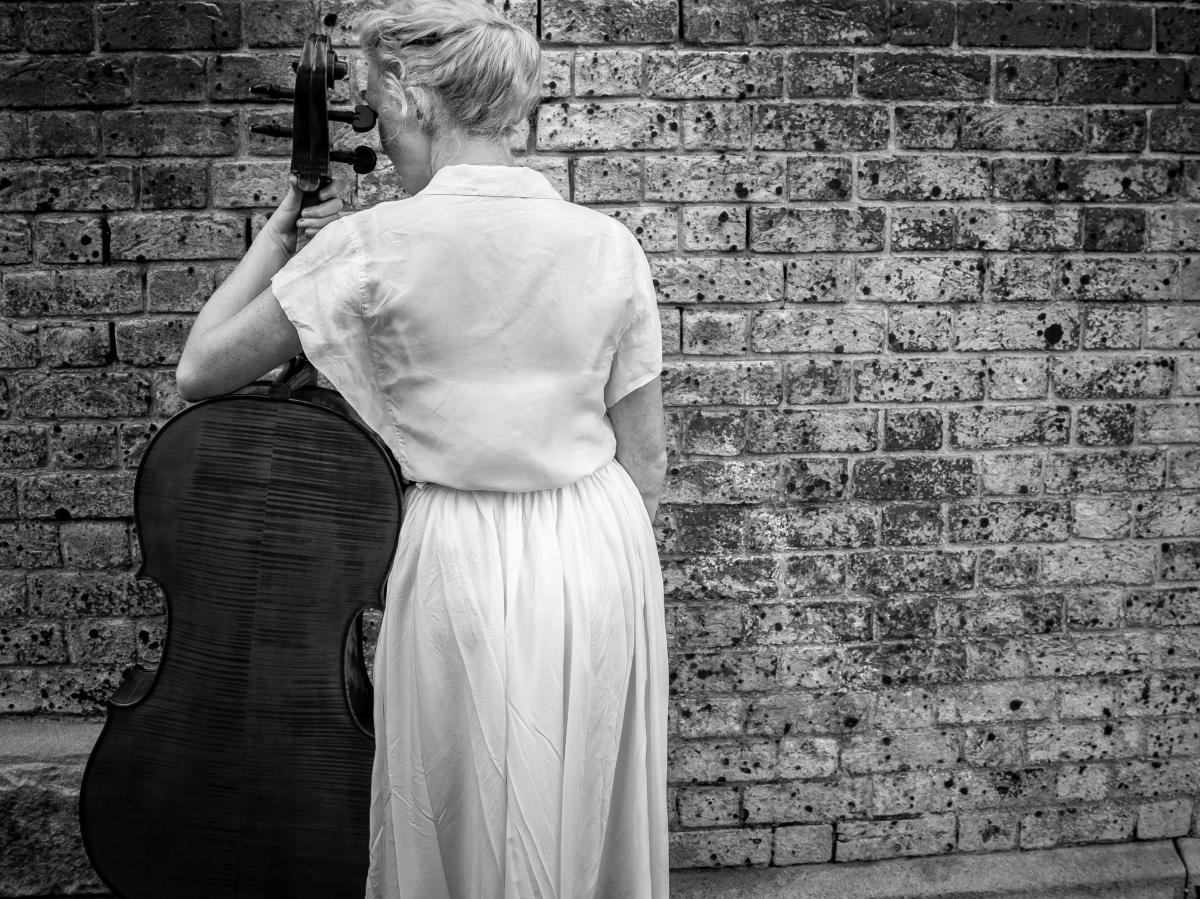‘This is Truda.
She is 17 years old.
The year is 1938.
She’s never smoked cigarettes but knows what they taste like.
She sometimes puts jam in her coffee when it’s too strong.
Truda will soon be sent away to England with six necklaces hidden underneath her fur coat.’
It’s a well-written press release. It gives just enough information to tease the audience with the promise of WWII action. It paints a quirky, entertaining character. It hints at a loss of youth and innocence. Unfortunately, it delivers none of the above.
This semi-fictional one-woman play consists of writer/performer Olivia Satchell onstage for an hour, narrating three different characters across three generations – Truda, her son Paul, and his daughter Olivia (Satchell). Satchell’s narration jumps between the three characters, across their respective time periods, with whirlwind frequency – and it’s confusing. It doesn’t help that there is no change of effects to differentiate each character. ‘This is Truda, this is Paul, the year is 1938, the year is 1991….’ From the get go, we are inundated with names, dates, ages, with very little context. The monologue is broken up with sporadic interludes of Satchell playing the cello, which is surely the best thing about this performance. Who doesn’t love a live cello?
As a piece of live performance, the writing doesn’t quite stand up. It more closely resembles a diary entry – intimate, self-indulgent and disjointed musings with no respect to rhythms and dynamics which are required to engage a live audience. The cello provides a welcome respite from being talked at. Satchell herself is inoffensive enough – warm and watchable. The faults with engagement lie more with writing than performance.
Visually and aurally, there’s little going on. A family tree is chalked up in the background. The cello (which becomes representative of subsidiary characters in the story) gets a crack at being played or danced with every now and then. Everything else is left up to Satchell’s monologue and audience’s imagination.
Overall, this is a superficial treatment of a very intriguing theme. The promise to connect with a long lost grandparent is not realised, probably because in reality, nobody really knew Truda. The monologue says more about the writer than Truda, so there was potential to craft the story around Satchell’s personal pursuit of knowing her grandmother, but that isn’t explored in depth either. The experiences described are clichés – European jam-making expeditions, learning to ride a bicycle, falling in love. This could be about anyone – which is probably deliberate, but does not make for compelling viewing. It is neither here nor there – neither fact nor fantasy, attempts to be about three different characters, but winds up being about no-one at all. It is about everything, but says nothing.
The play capitalises on Truda’s traumatic experience as a Jew during WWII, but the play neither understands that trauma, nor does it attempt to understand it. Is it not wrong, necessarily, to borrow trauma to make oneself more interesting – but you’d hope there would be an attempt to use that trauma to understand and appreciate what others have gone through. Sadly, this play did not live up to the potential. I did not feel, I did not experience, I did not learn.
Rating: 1 ½ out of 5 stars
My Name is Truda Vitz
Writer/Performer Olivia Satchell
Director/Dramaturg Pierce Wilcox
Producer/Creative Development Alison Rooke
Designer Isabella Andronos
Lighting Designer Benjamin Brockman
Tap Gallery, Burton St, Darlinghurst
www.tapgallery.org.au
25 June – 6 July





